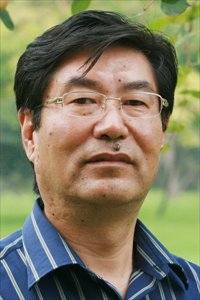Government waste endangers Party spirit

Zhu Lijia (竹立家)
Editor's Note:
Government waste has long been a target of public criticism. Although the government has taken measures to promote transparency over spending, the public seemingly remains unsatisfied. Why is the waste of public funds so severe in China? How can the situation be improved? People's Daily Online (PO) talked to Zhu Lijia (Zhu), director of Public Administration Studies at the Chinese Academy of Governance, on these issues.
PO: Where is this money being spent?
Zhu: The Chinese public has long been aware that our government spends a lot of money on itself, mostly on so-called "administration costs" that embody the kind of consumption involved. Our government's spending on itself takes up nearly 20 percent of the country's fiscal revenue, and has retained this level for years.
In comparison, the level of Japanese government costs is the lowest one in developed countries, making up only 2.8 percent of their fiscal revenue. And the average level in EU countries is about 5 percent. As we can see, the Chinese government's spending on itself is higher than that of developed countries.
The most significant aim for the government reform is to reduce its costs. But extravagance and waste are also reflected in policy misstep. As the sarcastic comment goes, "Mend the roads just laid, tear down the buildings just built," which is a result of these missteps. This kind of waste is a serious problem here as well.
PO: The Green Island Stadium in Shenyang, which cost 800 million yuan ($125 million) to build in 2003, was demolished recently. This kind of story is not rare. Why does this happen?
Zhu: Our country wastes enormous amounts of money in public construction due to redundant construction and the poor quality of projects, which is a result of policy missteps.
Missteps in public policy exist in any country, but they are particularly serious in our country. We don't have enough transparency and democratic participation. It's very common for policy to be decided only by the leaders at the top, causing irreparable consequences or the waste of money.
PO: What's the biggest difficulty in trying to control spending? And what consequences does such extravagance and waste have?
Zhu: The waste of public resources is reflected not only in policy missteps, but also in public spending, such as spending on government cars, banquet, overseas travel, and lavish offices.
To put it bluntly, this spending reflects the privileged corruption in modern society, which goes against the demands of our Party's values and against the aim of serving the public. In government, we must practice strict economy and make the best with limited money, acting from the interests of the people and the public.
PO: During the two sessions this year, some suggested setting up anti-waste laws to control spending on lavish banquets. Also there were some proposing a change to the criminal law to combat extravagance. Is this an appropriate response?
Zhu: Our country has introduced a great number of regulations to combat official extravagance since the new China was founded, but they are rarely implemented. Extravagant practices are banned but widely practiced. For example, when it comes to the reform of official cars, the number of the government cars hasn't decreased, but is still increasing, as can be seen from the increasing spending on government cars. It proves that the reform hasn't achieved its goal and met the requirements.
But I don't agree with including the problem into the criminal law. In the modern world, especially in developed countries, it is rare to see extravagance and waste in government. We should get used to taking good care of the public resources, which is the basic ethical line for the government.
Civilized governments ought to do it, not to mention the government of a socialist country. We have a very specific aim, serve the people, as we always say. Waste shows irresponsibility toward the nation and people, and is not in accordance with our aim. Also, it goes against the conscience of the Party and the desire of the people.
PO: Government spending is supposed to be disclosed now, but it seems to be done half-heartedly. Take the Department of Foreign Trade and Economic Cooperation in Guangdong Province as an example, which only used 39 words to disclose information about its spending. Does this kind of opaque and unclear language really help?
Zhu: The first step to curb spending is disclosure, but many departments are not willing to do so. They didn't publish the information in detail.
Therefore, supervision over information disclosure should be enhanced.
Besides, a punishment mechanism should be established, so that those who are unwilling to publish the information can be severely published.